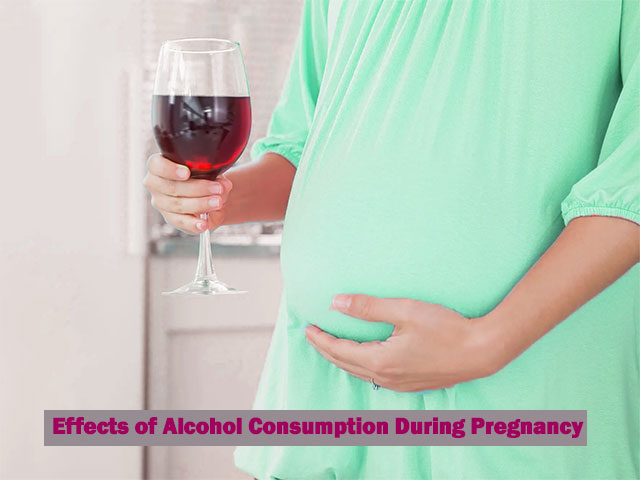Drinking while pregnant

Alcohol consumption during pregnancy is a controversial topic due to its potential adverse effects on the developing fetus. Despite the numerous studies indicating the detrimental impact of alcohol on fetal development, some pregnant women still consume alcohol, either because they are unaware of its effects or because they believe that moderate consumption does not harm the fetus.
This article will discuss the effects of alcohol consumption during pregnancy and provide strategies to reduce its negative impact on the fetus.
Effects of Alcohol Consumption During Pregnancy:
Alcohol is a teratogenic substance that can cross the placental barrier and reach the developing fetus. The impact of alcohol on fetal development depends on the timing, duration, and amount of alcohol consumed.
Alcohol consumption during the first trimester of pregnancy is particularly harmful as it can interfere with the formation of the neural tube and cause birth defects, such as facial anomalies and intellectual disabilities.
Additionally, exposure to alcohol during the second and third trimesters can cause fetal alcohol syndrome (FAS), a condition characterized by growth retardation, facial abnormalities, and intellectual disabilities.
Alcohol consumption during pregnancy can also cause a range of behavioral and cognitive problems in the child, collectively known as fetal alcohol spectrum disorders (FASD). Children with FASD may have difficulties with learning, memory, attention, and social interaction, and may be at an increased risk of developing mental health problems, substance abuse disorders, and criminal behavior.
Related posts: The Impact of Smoking on Pregnancy and the Infant

The consequences of alcohol consumption during pregnancy can be severe and long-lasting for both the mother and the developing fetus. Alcohol is a teratogenic substance that can harm the fetus by crossing the placental barrier and interfering with its development.
The most common adverse effects of alcohol consumption during pregnancy include physical birth defects, such as facial anomalies, and intellectual disabilities.
Fetal Alcohol Syndrome (FAS) is a severe condition that can result from alcohol exposure during pregnancy and is characterized by growth retardation, facial abnormalities, and intellectual disabilities.
In addition to physical birth defects, alcohol consumption during pregnancy can also cause a range of behavioral and cognitive problems in the child, collectively known as Fetal Alcohol Spectrum Disorders (FASD).
Children with FASD may have difficulties with learning, memory, attention, and social interaction, and may be at an increased risk of developing mental health problems, substance abuse disorders, and criminal behavior.
Alcohol consumption during pregnancy can also harm the mother’s health by increasing the risk of complications during pregnancy and childbirth. For example, alcohol consumption during pregnancy can increase the risk of miscarriage, stillbirth, preterm delivery, and low birth weight.
It is important to note that there is no safe level of alcohol consumption during pregnancy. Even moderate alcohol consumption can harm the developing fetus, and the only way to prevent these harmful effects is to abstain from alcohol altogether during pregnancy.
In conclusion, the consequences of alcohol consumption during pregnancy can be severe and long-lasting for both the mother and the developing fetus. Pregnant women should be aware of the potential risks of alcohol and encouraged to abstain from alcohol altogether to ensure the healthy development of their children.
Related posts: Consumption of Milk during pregnancy
Strategies to Reduce the Negative Impact of Alcohol Consumption during Pregnancy:
The most effective way to prevent the negative impact of alcohol consumption during pregnancy is to abstain from alcohol altogether. However, if a pregnant woman is struggling with alcohol addiction, she should seek medical help to overcome her addiction and reduce the risk of harm to the fetus.
Education and awareness campaigns can also play a crucial role in preventing alcohol consumption during pregnancy. Pregnant women should be informed about the potential adverse effects of alcohol on fetal development and the importance of avoiding alcohol during pregnancy. Healthcare providers should also be trained to identify and support pregnant women who are struggling with alcohol addiction.
In addition, social support programs can help pregnant women to avoid alcohol consumption by providing them with emotional support and practical assistance. For example, programs that provide pregnant women with healthy food, transportation, and childcare services can reduce stress and enable them to focus on their pregnancy.
Can one glass of wine cause fetal alcohol syndrome?
There is no safe level of alcohol consumption during pregnancy, and the risk of harm to the developing fetus increases with the amount and frequency of alcohol consumption.
While there is no specific amount of alcohol that is known to cause Fetal Alcohol Syndrome (FAS), it is a severe condition that can result from alcohol exposure during pregnancy, and the risk increases with heavy and prolonged alcohol consumption.
However, even moderate alcohol consumption during pregnancy can increase the risk of a range of behavioral and cognitive problems in the child, collectively known as Fetal Alcohol Spectrum Disorders (FASD).
Therefore, it is recommended that pregnant women abstain from alcohol altogether to ensure the healthy development of their child.
Related posts: Consuming Caffeine During Pregnancy
Does alcohol affect baby pregnancy?
Yes, alcohol can affect the baby during pregnancy. Alcohol is a teratogenic substance that can cross the placental barrier and harm the developing fetus.
The consequences of alcohol consumption during pregnancy can include physical birth defects, intellectual disabilities, and a range of behavioral and cognitive problems in the child, collectively known as Fetal Alcohol Spectrum Disorders (FASD). Additionally, alcohol consumption during pregnancy can increase the risk of complications during pregnancy and childbirth for the mother.
It is recommended that pregnant women abstain from alcohol altogether to ensure the healthy development of their child.
Is it OK to have 1 alcoholic drink when pregnant?
No, it is not okay to have even one alcoholic drink when pregnant. There is no safe level of alcohol consumption during pregnancy, and even small amounts of alcohol can harm the developing fetus. It is recommended that pregnant women abstain from alcohol altogether to ensure the healthy development of their child.
Is it OK to have a glass of wine when pregnant?
No, it is not okay to have a glass of wine or any other alcoholic beverage when pregnant. There is no safe level of alcohol consumption during pregnancy, and even small amounts of alcohol can harm the developing fetus. It is recommended that pregnant women abstain from alcohol altogether to ensure the healthy development of their child.
What is the best way to prevent the harmful effects of alcohol during pregnancy?
The best way to prevent the harmful effects of alcohol during pregnancy is to abstain from alcohol altogether. Pregnant women should be aware of the potential risks of alcohol and encouraged to avoid alcohol consumption during pregnancy to ensure the healthy development of their child.
What are the consequences of alcohol consumption during pregnancy?
Is it safe to drink alcohol during pregnancy?
What is Fetal Alcohol Syndrome (FAS)?
What are Fetal Alcohol Spectrum Disorders (FASD)?
Conclusion:
In conclusion, alcohol consumption during pregnancy can have severe and long-lasting effects on the developing fetus. Pregnant women should be informed about the potential risks of alcohol and encouraged to abstain from alcohol altogether.
Education, awareness campaigns, healthcare provider training, and social support programs can all play a role in preventing alcohol consumption during pregnancy and reducing the negative impact of alcohol on fetal development. It is essential to recognize the seriousness of this issue and take action to prevent the harmful effects of alcohol on fetal development.
